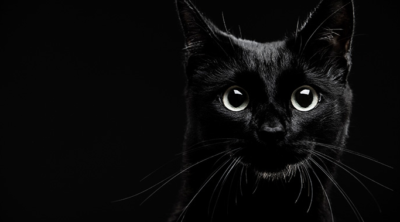
Stoke in cats is a medical condition that affects our feline friends to a great extent. Find details on feline stroke causes, as well as types by going through the article given below.
Not many cat owners are aware that their loving kitties can fall prey to a stroke episode. It was considered very rare to observe stroke in pet cats. However, more and more veterinarians have found the number of feline stroke cases on the rise. There are two types of strokes that can affect your pet cats. You can find in-depth information on causes, symptoms and treatment in the following CatAppy article.
What is a Feline Stroke
It is a condition where the brain suddenly receives lesser supply of blood. This causes brain functions to be hampered and death of brain cells. There are two types of feline strokes that need immediate and prompt medical intervention. If not treated soon, it may lead to development of a debilitating conditions in the cat. Let us have a look at the two types below.
Types of Feline Strokes
The two types of strokes seen in cats are ischemic stroke and hemorrhagic stroke. These two conditions are explained below:
Hemorrhagic Stroke
This type of stroke occurs when the normal blood supply to the brain is disrupted or reduced. It may even happen if a blood vessel in the brain ruptures and blood leaks into the brain. Thus, it begins to accumulate in the area between the brain and the skull. The causes include:
- Brain injury
- Bleeding of tumor present in the brain
- Abnormal blood vessel structure
- High blood pressure
- Ingestion of certain poisons or toxins
- Inflammation of the arteries
Ischemic Stroke
Ischemic stroke occurs when the blood flow to the brain is disrupted by the presence of the thrombosis or completely blocked due to embolism. The causes include:
- Presence of underlying heart disease
- Underlying kidney disease or disorder
- Thyroid disease
- Cushing’s disease in cat
- Feline diabetes
- Presence of an internal parasite like heartworm
- Clogging of blood vessels
In most cases, the feline heart attack causes are found to be idiopathic in nature. This means, the causes of stroke are totally unknown.
Causes
From the above paragraph, we have understood, causes of cat stroke include either:
- Thyroid disease
- Kidney disease
- Brain tumors
- Cushing’s disease
- Diabetes
- Heart disorders
In some cases, the spinal cartilage or fat fragment may get dislodged. This fragment travels down to the brain and gets itself lodged there. This leads to blockage of the blood vessel and the cat suffers from a stroke. A few cats are genetically prone to develop congenital blood clotting diseases or certain kittens have immune-mediated thrombocytopenia. These kittens and cats are more prone to stroke. An accidental bump on the scalp can also lead to stroke in cats. One should make sure poisons like rodenticides or insecticides are kept away from cats as they can lead to poisoning and symptoms of stroke in the affected cat.
Symptoms
As a pet owner, one should always stay alert regarding any difference in the pet’s health. The stroke symptoms in cats are different from the symptoms seen in humans. Some of the signs of stroke in cats include:
- Tilting of head
- Sudden loss of balance
- Problems with vision
- Falling down
- Circling around
- Problems with facial muscles like inability to close eyes or move lips
- Behavior changes
- Temporary blindness
- Ataxia
- Loss of appetite
- Sudden loss of bowel
It is not necessary that any or most symptoms indicate a stroke. They may occur in presence of other medical disorders as well. Thus, it is advisable to seek veterinarian help immediately for proper diagnosis.
Treatment
Stroke in cats requires immediate medical attention. The therapy suggested by the veterinarian includes reduction of the brain swelling and tissue damage. The cat is rehydrated with the help of intravenous or subcutaneous fluids. She is kept in a warm, absorbent bedding that has to be changed regularly. The underlying cause is identified and treatment plan is made accordingly. Drugs like sedatives, antiemitic, anti-inflammatory medications, anti-seizure medications, etc. may be suggested according to the health of the animal.
Cats normally return to their normal self after about 2 to 3 weeks of pregnancy. If immediate treatment is not given, it could lead to permanent disabilities in the cat. Thus, speak to a veterinarian, in case you suspect anything out of the blue affecting your cat’s health.


